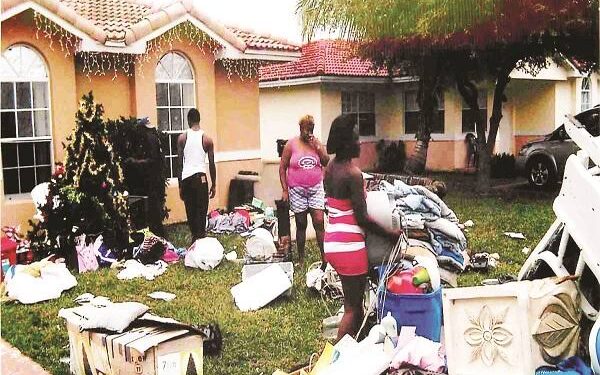By John Danjuma Omachonu
Indications have emerged that the soon-to-commence implementation of the new Insurance Reform Act would engender frosty relationship between Landlords and tenants as the two major actors in the policy mix, brace up for Impact of the reform implenentstion very soon.
Interactions between metrobusinessnews.com (MBN) From The Street platform temd to highlight the potential consequences of the Act on the relationship between landlords and tenants, as well as the impact on affordable housing in Nigeria.
Good and desrable as the mew policy is, some Nigeriabs insist that unless government intervenes by way of subsidies, its implementation could be a recipe for furher worsening the housing deficit in Nigeria.
The general consensus from the street is that there is need for government”s support to mitigate these effects, through subsidies or phased rollouts to ease the transition for both landlords and tenants.
The reasoning is that rent hikes seem inevitable as Landlords would Pass on the new insurance costs to tenants as well as the impact on affordable housing in Nigeria.
The new law, as recently signed by the Nigerian government under the administration of President Bola Ahmed Tinubu, is expected to change the rules for property owners in Nigeria.
The law, known as the Nigerian Insurance Reform Act (NIIRA) Act 2025, makes it compulsory for landlords and other owners of public buildings to insure their houses against hazards like fire, flood, or building collapse.
Beyond protecting lives and property, the law also aims to hold landlords accountable for damages suffered by tenants, visitors, and even third parties.
Indeed the Insurance Industry Reform Act, according to them, increases financial burden on the Landlords, who will face additional insurance costs, which may be substantial, particularly for multi-property owners or those managing high-risk structures, leading to rent hikes.
Indeed the landlords would face penalties for Non-Compliance, as failure to comply with the Act may result in fines of at least ₦1 million, imprisonment, or both.
But, more worrisome, they further argue, are the consequences for tenants as most of them may experience rent inflation, potentially worsening affordability issues, especially for low-income households.
However, while the tenants could benefit indirectly from safer buildings, their personal belongings remain uninsured, and they may need to purchase separate renters’ insurance.
The hapless tenants could face potential disruptions, in the event that landlords fail to comply, and authorities may seal off non-insured properties, leading to sudden eviction or disruption for tenants.
At the hearts of most Nigerians is the affordability concerns, as the increased costs associated with insurance may lead to higher rent prices, making affordable housing more challenging for low-income households to access..
Metrobusinessnews.com (MBN) gathered that the estimated housing deficit in Nigeria varies, but recent reports suggest it’s around 16 to 21 million units.
The Minister of Housing and Urban Development, Musa Dangiwa, puts the housing deficit at approximately 16 million units.
However, some other reports and experts suggest the deficit could be higher, ranging from 17 million to 21 million units or more, depending on the source and methodology used.
Infact , Nigeria would need to build hundreds and thousands of housing units annually to bridge this gap.
Others estimate that with the ever rising population, Nigeria would need about 550,000 units per year for the next decade or 2.7 million new houses annually for 10 years, with a substantial investments, ranging from N5.5 trillion to N59 trillion over the next 20 years.
“The housing deficit is a complex issue, influenced by factors like population growth, urbanization, and economic conditions. Addressing it will require significant investment, strategic planning, and collaboration between government agencies, private developers, and other stakeholders,” says an analyst..
Our investigations also show the need for public enlightenment on the part of government and the industry regulators.
Beside the cost implications and compounded by the dwindling value of rhe local currency as well as its purchasing power, the age-long negative perception about the Insurance industry needs to be addressed.
The general feeling is that majority of the operators are laid-back, only content with revenue from government patronage, while leaving the core insurance businesses to touts.
A case at issue is the third party policy that has been taken over by the ‘real third party’ non industry actors to the shame and discomfort of the industry regulators and few operators that are really practising.
Thus is despite the existence of many regulatiory authorities, including for those listed on the nation’s Exchange, but viewed by the public as ‘lame ducks’ who, as government appontees, are only answerable to the government that appointed them., at the expense of regulation and supervision.
Today, despite efforts of the few good operators who pay claims as at when due, they are still many bad eggs among them who are reneging ‘comfortably’ on paying claims, but would rather capitalise on few clauses in the contracts to delay and in most cases, deny victims of disasters, either natural or not.
Even the quoted ones are not left out as the regulators, in most cases, look the other way, when victims were being denied amd humiliated.
However, Nigerians’ hope is gradually being rekindled following the new Insurance Act, but, of course with government scrutiny and effective supervision.
Another way out, according to most respondents, is to make the institutions strong, and independent for full adherence to the rule of law, as opposed to the current impunity at almost all levels of governmen, both at appointed and elected/selected levels.
What is NIIRA Act 2025?
The Nigerian Insurance Industry Reform Act (NIIRA) 2025 is a framework for the insurance industry. It sets out clear rules to protect people who buy insurance, make sure companies play fair, and keep the market disciplined. It also pushes for more people to understand and use insurance, helps the industry grow, and even creates jobs along the way.
The NIIRA2025, signed into law on August 5, 2025, by President Bola Ahmed Tinubu, repeals the Insurance Act 2003, enacted nearly two decades ago.
The new Act provides for comprehensive regulation and supervision of all insurance and reinsurance businesses operating within Nigeria.
What are the key focuses of NIIRA Act
Key focus of the new insurance law, according to the Federal Government, includes:
1. Stringent capital requirements to ensure the financial soundness of operators.
2. Enforcement of compulsory insurance policies to enhance consumer protection; Digitisation of the insurance market to improve access and efficiency.
3. Zero tolerance for delays in claims settlement; Creation of dedicated policyholder protection funds, especially in cases of insolvency.
4. Expanded participation in regional insurance schemes, including the ECOWAS Brown Card System.
“It reflects the Federal Government’s commitment to deepening financial inclusion and ensuring that insurance becomes a robust pillar in Nigeria’s economic architecture and in line with the president’s vision for achieving a $1 trillion economy by 2030,” a statement issued by Bayo Onanuga, Special Adviser to the President on Information & Strategy, said.
How does NIIRA Act affect landlords and other public building owners
As mentioned, a major focus of NIIRA2025 is to make sure compulsory insurance policies are properly enforced in Nigeria, with the main goal of protecting consumers.
Before this new law, five types of insurance were already compulsory: Group Life Insurance under the Pension Reform Act 2004 (amended in 2014); Insurance for Buildings Under Construction (Section 64 of the Insurance Act 2003); Occupiers Liability Insurance (Section 65 of the Insurance Act 2003); Motor Third Party Insurance (Section 68 of the Insurance Act 2003); and Health Care Professional Indemnity Insurance (Section 45 of the NHIS Act 1999).
The new law goes further by requiring that all public buildings must be insured against risks like collapse, fire, earthquakes, storms, floods, or any other hazards the National Insurance Commission (NAICOM) may specify.
What buildings must be insured?
The law defines public buildings as not just offices and schools, but also tenement houses with more than one floor, hostels, rented apartments, medical centres, and recreational facilities—basically, any building that people use for living, learning, business, or leisure.
In other words, all houses or buildings are considered public buildings, except those in which the landlord lives and does not collect rent.
It is noted under the compulsory insurances provided for by the new Act, section 77 stated that all assets and employees of the Federal Government and its agencies shall be insured against the hazards and perils of such nature as the Commission may determine.
Section 78 stipulates that all petroleum and gas refilling stations and installations be insured against third-party losses occasioned by accidental fire outbreak or explosion. Also, all vehicles transporting petroleum and gas products shall be insured against third-party losses occasioned by accidental fire outbreaks or explosions.
READ ALSO:Judge Blocks Trump From Withholding Funds From Los Angeles, Other Sanctuary Cities
Beyond protecting lives and property, these insurance policies also cover the legal responsibilities of landlords and building owners. This means if someone suffers injury, death, or damage while in or around the premises, the insurance would help take care of those liabilities.
What must landlords or building owners do?
All public buildings must be insured
Keep a copy of the insurance certificate
Renew and pay the policy every year
Be ready to show proof to inspectors when asked
How will it affect tenants?
Since the law now mandates landlords to pay insurance on public buildings, they might likely;
Add insurance cost to rent
Increase rent (in addition to the service charge, agent fee, agreement fee, and others)
What is the penalty for defaulters?
According to the new law, a person who fails to comply with subsections is liable on conviction to a fine of at least N1m or a minimum term of two years’ imprisonment or both.
How much will you pay for insuring your building?
A part of the new law stipulates that, “Also, every direct insurer on policies issued under subsection (1) shall pay 0.25 per cent of the net premium received quarterly into a Fire Services Maintenance Fund which shall be established, administered and disbursed by the Commission to provide grants or equipment to institutions engaged in firefighting services.”
How to claim insurance?
Section 79 (1-3) of the law explains how insurance claims are handled when a house or building insured against fire is damaged or destroyed.
1. “Where a house or any other building insured against loss by fire is damaged or destroyed by fire and there is no reasonable ground to suspect that the owner, occupier or any other person who insured the house or other building is guilty of fraud in respect of the insurance, or of wilfully causing the fire, the insurer who is liable to make good the loss may, on the request of any person entitled or interested in the insured house or building, cause the insurance money payable to be paid out and expended as set out in subsection (2).
2. “The insurance money payable under subsection (1) shall be paid out and expended towards rebuilding, reinstating or repairing the house or any other building so burnt down, damaged or destroyed by fire, unless (a) the party or parties claiming such insurance money, within 60 days after the claim is agreed, give security to the satisfaction of the insurer that the insurance money will be paid out and expended as stated; or (b) the insurance money is, at the time, settled and disposed of among all the parties entitled as the insurer may determine with the approval of the court on the application of the insurer or any of the interested parties.
3. “Notwithstanding the provisions of subsection (1), the insured shall have the right to decide whether to reinstate the house or building damaged or destroyed by fire or to pay the insured for the loss suffered but not exceeding the insured sum.”
Who will implement the NIIRA Act?
The National Insurance Commission (NAICOM) is mandated to administer and implement the provisions of the NIIRA 2025 in a manner that unlocks the industry’s full potential and significantly improves insurance penetration across the country.
The new law on compulsory insuring of public buildings has been welcomed by stakeholders as it is set to make sure landlords, businesses, and even government agencies take responsibility, so that when disasters strike, the victims are not left stranded. However, concerns were raised about whether the agency in charge will actually pay up when a disaster occurs in the long run.












